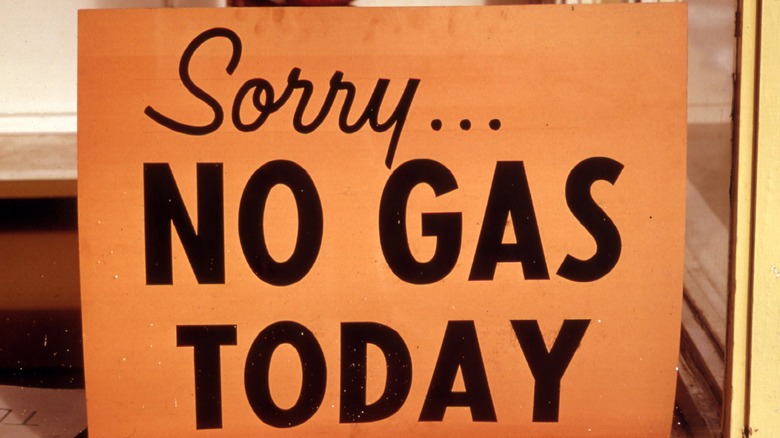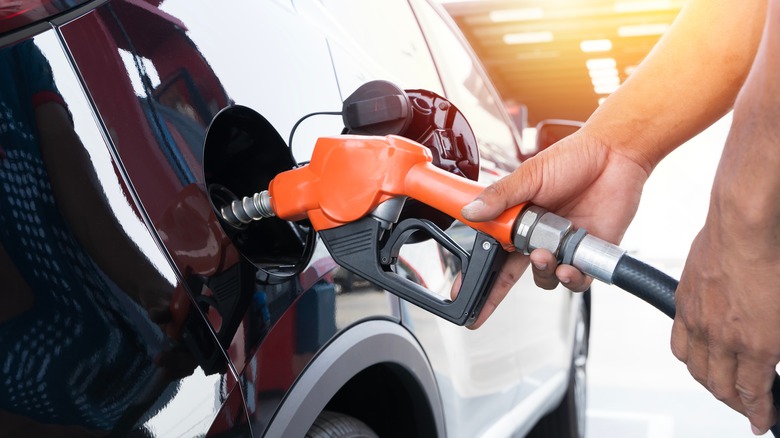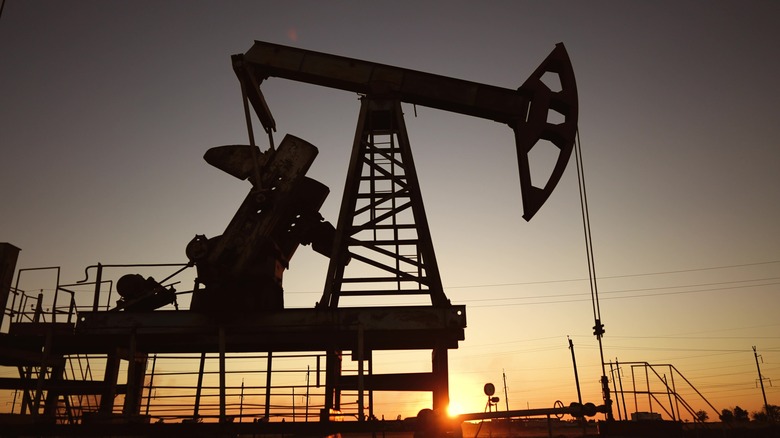Our Expert's Grim Prediction About The End Of Fossil Fuels In The Auto Industry (Brace Yourself)
The hope with research into renewable sources of energy is that, once we crack the code, we can put an actual plan of action in motion to transition the global energy infrastructure over. After all, there's not really much of a point to developing clean, endless energy if nobody's going to use it. But have you ever stopped to think about this prospective changeover in practical terms? The sheer amount of work and money that will need to go into a change in the very bedrock of modern transportation? It won't be pretty, to say the least.
Even putting aside the monumental effort required to transition to renewable energy sources, we first need to wean society off fossil fuels, which presents a myriad of problems in its own right. In all likelihood, it would effectively take a disaster, either of pricing or scarcity, to force the world at large off fossil fuels, which means we're in for a bumpy future.
To illuminate this bumpy future a bit more clearly, we spoke with Dr. Laine Mears, Ph.D., P.E., the Automotive Manufacturing Chair of Clemson University's department of automotive engineering. Dr. Mears has been an assistant professor with the CU-ICAR campus since 2006, teaching both modeling and analysis of automotive manufacturing processes and automation integration in manufacturing. You can find more information about him on Clemson University's website.
Fossil fuel is just too good at what it does to go without a fight
The foremost problem with transitioning from fossil fuels to renewable energy, even a hypothetically perfect and infinite energy source, is fossil fuels are just too good at what they do. Traditional cars are generally considered more reliable than EVs because combustion engines are a solved science, while there are still a lot of kinks to work out of battery-powered vehicles.
"These fuels as a power source are close to optimal in terms of the ability to carry energy and deliver it quickly," Dr. Mears explained.
If we completely disregard the negative aspects of fossil fuels, such as growing scarcity and environmental impact, it's hard to argue with their efficacy. You can get gas readily at thousands of gas stations, the majority of vehicles and engines are built to accept it, and you get exactly as much power and performance out of it as you expect to. The reason gasoline has served as the world's baseline fuel for as long as it has is because there's no guesswork in its usage — you open the gas cap on your car, you put the gas in, you drive away. Unless we could develop a renewable power source that offers that exact level of reliability or better, it's going to be hard to convince the world at large to adopt it on the same scale.
A full changeover won't happen until fossil fuels are completely depleted or prohibitively expensive
Since fossil fuels are so ingrained in modern society, it'll take nothing short of a tremendous upheaval to knock them off the throne. According to Dr. Mears, this upheaval could take one of two forms.
"The only thing in my mind that will end dependence of fossil fuels is if the supply were to run out or become so expensive as to be prohibitive," he theorized.
The only thing that could prove to be the ultimate undoing of fossil fuels is their definitive finality. Fossil fuels will run out someday, and as the supply dwindles, gas prices will only continue to increase. However, society and the economy are willing to put up with quite a bit. Even if gas prices get high, we'll just gripe about it and go about our days. It's when fossil fuels become so scarce that the average person either can't get them without paying more than their car costs, or at all, that change may finally be forced through.
Dr. Mears believes that there is no way to eliminate this rough transition entirely, but continued development of renewable energy will make it at least somewhat less painful. "Continued development of electrochemical storage systems and alternative sustainable fuels such as alcohols will definitely dent the breadth of fossil fuels, but not eliminate it. How big an effect these will have will be driven primarily by economic factors."


